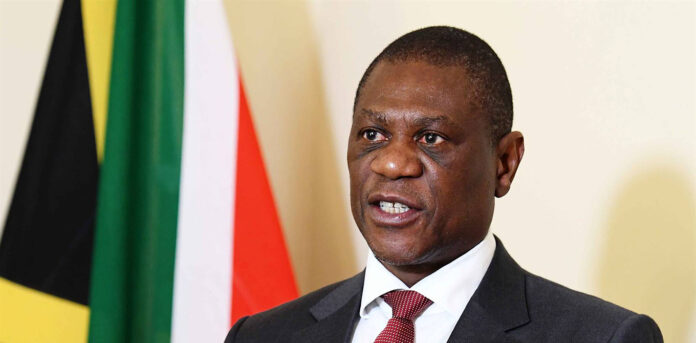Deputy President Paul Mashatile has urged political parties within the government of national unity (GNU) to present a united front when it comes to the country’s budget.
Mashatile warned that internal disagreements, particularly over financial matters, risk undermining the stability and purpose of the coalition.
Mashatile was addressing the Financial and Fiscal Commission 2025 Budget Roundtable at the FFC building in Cape Town on Wednesday.
Challenges under GNU
He also addressed challenges under the GNU, and claimed that tensions are already felt as some coalition partners refuse to support the proposed fiscal framework.
He argued that government partners must be willing to compromise and seek solutions in the national interest.
“Having convened the National Dialogue on coalition governments, one of the critical lessons learnt is that coalition governments mainly collapse over disagreements on the budget, or stay together on the budget agreements.
Proposed fiscal framework
“We were therefore not surprised that some in the GNU did not vote for the proposed 2025 fiscal framework. Hence, we have been arguing that you cannot be in government, which you have not supported its budget, especially after intense negotiations,” said Mashatile.
Despite the difficulties, he said South Africa’s ability to maintain stability during fiscal debates shows the strength of its democracy. He added that the government is committed to expanding economic growth and improving living conditions for all citizens.
Mashatile said policy interventions since 1994 have not been enough to significantly reduce poverty and inequality.
He said the seventh administration has renewed its focus on growing the economy inclusively. It is tackling the cost of living, and building a capable and ethical state that can redirect resources where they are most needed.
Call for reforms
He called for reforms that would make budget planning more understandable and accessible to ordinary citizens.
Mashatile reflected on lessons from the 2025 budgeting processes. And he admitted that the current approach lacks transparency and public participation.
He believes this makes it difficult for people to grasp how government decisions on resource allocation are made.
“The budget process should be governed by principles of equity, equality and non-discrimination. Public allocations should be fair, just and available to all citizens.
“Particular steps should be taken to ensure that vulnerable sectors of society are not discriminated against in budget planning processes. Also when the national budget is presented,” said Mashatile.
The people’s budget
Mashatile called for a return to what he described as the people’s budget. A concept championed by the late Ben Turok and Joanamarrie Fubbs.
He explained that this approach involves fiscal planning that is inclusive from the outset. And it is closely aligned with government priorities.
He said the budget should be shaped with a focus on addressing persistent issues such as poverty, unemployment, and inequality.
According to Mashatile, public funds should be allocated in a way that is fair and just, without discrimination.
He emphasised the importance of ensuring that vulnerable groups are not left behind when budget decisions are made. And he insisted that equity and equality must be at the centre of the entire fiscal process.




